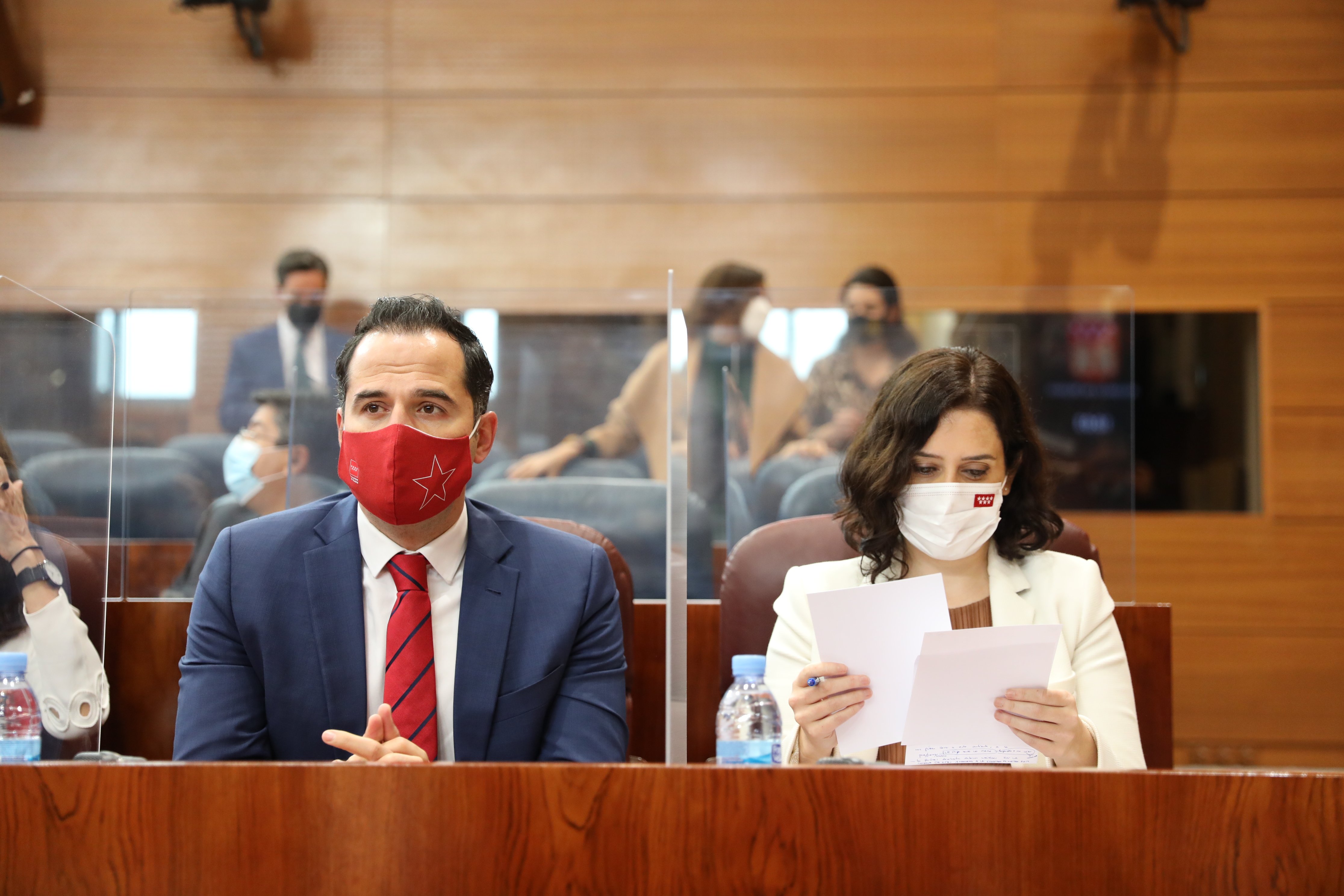A little Googling of old news stories is often an interesting exercise. A month ago, in the middle of the Catalan election campaign, the president of the Autonomous Community of Madrid, Isabel Díaz Ayuso, gave an interview to the newspaper El Mundo. The headline, very much in the style of the Popular Party (PP) leader: "If I had called elections, they would have called me unfeeling and dangerous." Paradoxically, today it was Ayuso who decided to call early elections, in the middle of the legislature, after the implosion of the regional government of Murcia - which, like hers, is a right-wing PP-Cs coalition under stress. She set the polling day for May 4th. She did so in an attempt to avoid a motion of no confidence, but it would seem that this hasn't worked either. And doubly paradoxically, the case is destined to end in the courts, just like the Catalan government's decision to postpone the elections eventually held, as the judges ordered, on February 14th.
The key is in the rapid-fire chronology of the election announcement. President Isabel Díaz Ayuso signed the decree dissolving the Madrid assembly and calling an election, during the meeting of her government at the Puerta del Sol. She did so a few minutes after 12 noon and according to Ayuso's team it was sent to the official gazette of the Madrid Community (although it hasn't been published). Then, at 13:04 hours, the left-wing Más Madrid party registered a motion of no-confidence. Three minutes later, at 13:07, Ángel Gabilondo registered another motion on behalf of the PSOE. And at 14:30, the Bureau of the Madrid Assembly met - in which PP does not have a majority. The procedural body of the parliament did not feel alluded to, and with the votes in favour of government partner Ciudadanos, accepted both of the no-confidence motions. Thus, the two highest authorities in the autonomous government - one governing the executive, and the other governing the parliament - have taken diametrically opposed decisions.
Ayuso believes she has called the elections while the Assembly has not been not dissolved and continues its activity
What does the law say? On the one hand, Article 21.2 of the Madrid Statute states that "the president may not agree to the dissolution of the Assembly when a motion of no confidence is being processed." On the other hand, article 2 of the law that regulates the power to dissolve the parliament states that "the decree of dissolution will be published in the official gazette and will enter into force at the time of publication" . This publication will not take place until Thursday morning.
What do they say in Isabel Díaz Ayuso's team? They argue that the motions of no confidence were registered after the agreement on dissolution of the Assembly of Madrid, and that the first decision prevails. Therefore, the calling of elections should prevail. In addition, they note that the processing of these initiatives has not been published either. To top it off, sources at the Puerta del Sol government building accuse the PSOE and Cs of "abuse of power" because the Bureau "was called" irregularly: without a time or documentation."
And what do the parties pushing the no confidence motions say? The PSOE and Más Madrid refer to the law, which states that the dissolution will not take effect until it is published in the official bulletin, which will take place tomorrow. And they claim that their no confidence motions are valid from the time they were registered and accepted for processing by the Bureau.
So, there are parallel realities in Madrid, one the PP's, the other its opponents. Isabel Díaz Ayuso believes she has called the elections, while the Madrid Assembly does not accept this and continues with its activity as if nothing had happened. In fact, the Assembly’s spokespersons' board has already set the agenda for next week’s plenary. The frenetic race will go to a photo finish. And the key will also be in the interpretation made of the laws - restrictive or open. The issue will most likely move to the courts in the next few hours, where the PP is confident of winning because of its knowledge of the judiciary. The script used for the Catalan elections is repeated. Although it remains to be seen whether the Madrid government will also have front pages and editorials taking aim at it.

